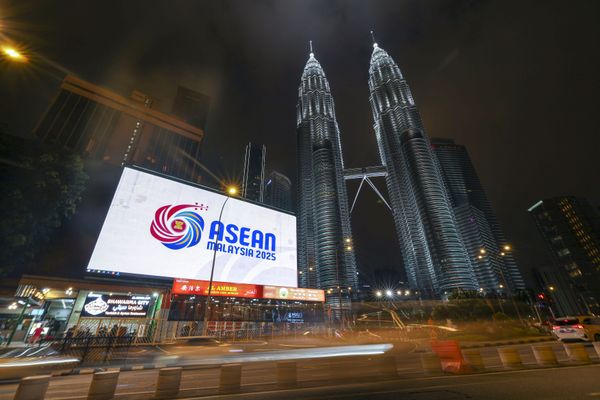KUALA LUMPUR, May 6 — The Philippines and Malaysia continue to deepen their longstanding relations through shared priorities and active collaboration, both bilaterally as well as within Asean, said its Ambassador to Malaysia Maria Angela A. Ponce.
She reaffirmed the Philippines’ support for Malaysia’s leadership and commitment to preserving Asean's relevance as a unified economic bloc, especially in the face of shifting global economic dynamics.
“Asean, with a population of over 600 million, holds significant influence as the world’s fourth-largest economic bloc.
"We must work together to leverage our collective strength,” she said during an interview with Bernama TV today.
During a briefing session on the United States (US) tariffs at a special Parliament session yesterday, Prime Minister Datuk Seri Anwar Ibrahim emphasised the need for Asean to adopt a collective position on the issue, reflecting the regional bloc’s solidarity and economic strength in engaging with the US.
Ponce also expressed the Philippine’s confidence in Malaysia’s leadership as this year’s Asean Chair, noting that Malaysia has shown adaptability and clarity in addressing complex challenges.
“The Philippines, which will chair Asean in 2026, continues to coordinate closely with Malaysia on key issues like the South China Sea and the ongoing situation in Myanmar,” she said.
The ambassador also voiced the Philippines’ support for Timor-Leste’s progress towards full Asean membership, acknowledging the challenges involved but expressing optimism about the country’s commitment and integration into the regional framework.
“We are confident in Timor-Leste’s ability to meet Asean's membership requirements,” she said.
On bilateral ties, Ponce highlighted key areas of growing engagement between the two countries.
These include halal cooperation, tourism, the digital economy, and Islamic finance, all of which have seen significant progress under the leadership of President Ferdinand R Marcos Jr and Anwar.
The Philippines has benefited from Malaysia’s experience and expertise in the halal industry development.
“Malaysia’s halal ecosystem is one of the best in the world.
"Through training and capacity-building programmes, we have been able to enhance our frameworks, and Malaysia’s guidance has been invaluable," she said.
Ponce also emphasised the importance of people-to-people ties as the foundation of both bilateral and regional cooperation, underscoring the need to continue engaging the younger generation in shaping the future of bilateral relations.
“Youth exchange programmes, educational linkages, and shared initiatives in digital innovation are essential for ensuring that ties between Malaysia and the Philippines remain dynamic and forward-looking,” she said.
Tourism was also highlighted as a growing sector, with Malaysia consistently ranking among the top ten sources of visitors to the Philippines.
“We are now looking to expand Islamic tourism, including the availability of halal-certified facilities to cater to Muslim travellers,” Ponce said.
Interest in Islamic finance is also gaining momentum, with the Philippine central bank recently holding a roadshow in Malaysia to attract investment in the sector.
She emphasised that Islamic finance complements broader environmental, social, and governance goals, making it appealing to the Muslim community and a wider audience seeking ethical and sustainable financial solutions.
Ponce also encouraged Malaysian businesses to participate in upcoming trade events in the Philippines, including the International Food Exhibition Philippines from May 10 to May 12, and Manila FAME, a premier lifestyle and design showcase, slated for October 17 to October 19.
“These platforms offer valuable opportunities to connect with Philippine exporters and explore collaboration in food, furniture, and creative industries,” she said.
— Bernama




